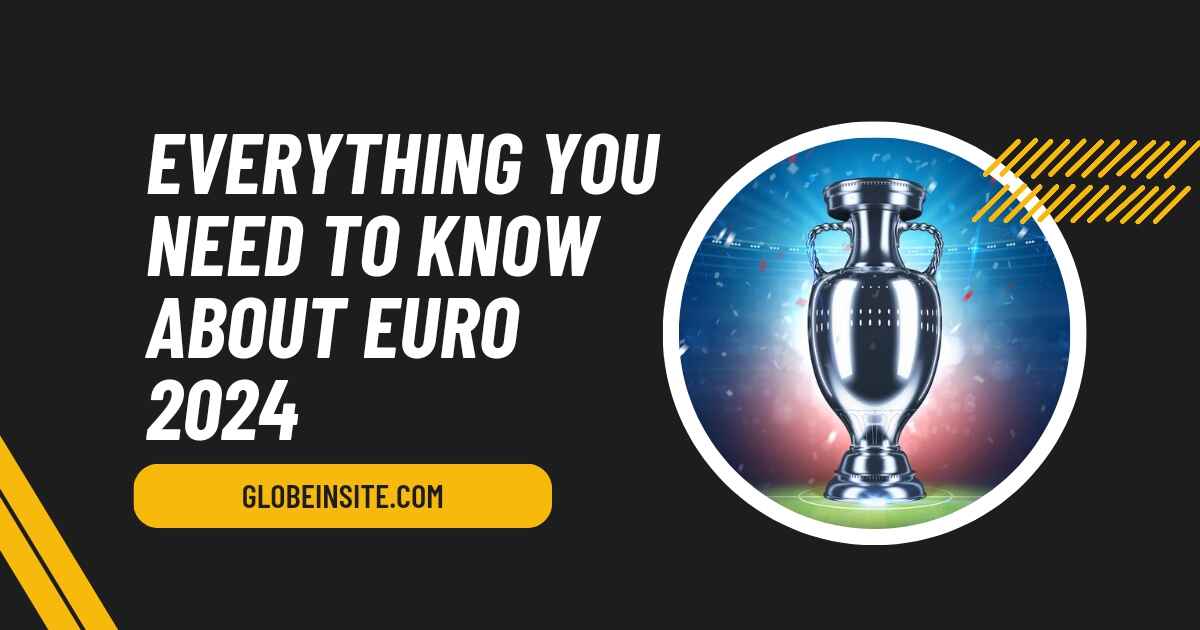Everything you need to know about EURO 2024: teams, venues, key player, Match highlights. Get ready for a great football tournament!
Prologue to EURO 2024
The energy is working as EURO 2024 methodologies, uniting the best football teams from across Europe to seek magnificence. Planned to be hosted in Germany, this competition vows to be a display of sportsmanship, ability, and public pride. Whether you’re a passionate football fan or just somebody who takes part in a periodic match, EURO 2024 has something for everybody.
History of the UEFA European Championship
The Origin of the Competition
The UEFA European Championship, usually known as the Euros, started in 1960. At first held like clockwork, this competition has filled essentially in ubiquity and glory. Its debut occasion saw the Soviet Union secure the title, making way for quite a long time of exciting football activity.
Key Achievements Throughout the long term
Throughout the long term, the Euros have seen various paramount minutes. From the surprisingly strong contender win of Denmark in 1992 to Spain’s dominance in 2008 and 2012, each rivalry has added one more part to the rich history of European football. The 2020 competition, held in 2021 in light of the Covid pandemic, was particularly famous for its pan-European format, commending the competition’s 60th anniversary.
The EURO Trophy: Image of European Football Greatness
The UEFA European Championship trophy, ordinarily alluded to as the EURO Trophy, is the esteemed honor introduced to the victor of the UEFA European Championship. Made in silver and weighing roughly 8 kilograms, the trophy remains at 60 centimeters tall. Its plan includes the outline of a player holding on high the ball, representing the victorious snapshot of triumph on the football field.
Reigning Champions
The UEFA European Championship 2020, held in 2021 because of the Coronavirus pandemic, delegated Italy as its champions. Italy’s triumph in the competition denoted their subsequent EURO title, the first being in 1968. Under the direction of supervisor Roberto Mancini, the Italian team showed excellent teamwork, strategic discipline, and flexibility all through the competition. In the last held at Wembley Arena in London, Italy confronted Britain in a profoundly expected match. After an outright exhilarating experience that finished 1-1 after additional time, Italy arose triumphant in the punishment shootout, winning 3-2.
Host Country: Germany
Choice Cycle for Host Country
Germany was chosen as the host for EURO 2024 after a thorough offering process. Going up against Turkey, Germany’s offered was viewed as the more grounded of the two, because of its advanced foundation, experience in hosting significant games, and the country’s football legacy.
Germany’s Arrangements for EURO 2024
Arrangements are going full speed ahead across Germany, with cities tidying up their offices and it are covered to guarantee that every strategic angle. The objective is to give a remarkable encounter to fans and players the same. From transportation to convenience, everything about being fastidiously intended to guarantee the smooth running of the competition.
Stadiums and Venues
Germany brags some the best football stadiums on the planet, and a few of these will have EURO 2024 matches. The chose venues include:
- Allianz Arena (Munich)
- Signal Iduna Park (Dortmund)
- Olympiastadion (Berlin)
- Mercedes-Benz Arena (Stuttgart)
- Red Bull Arena (Leipzig)
- Veltins-Arena (Gelsenkirchen)
- RheinEnergieStadion (Cologne)
- Volksparkstadion (Hamburg)
- Commerzbank-Arena (Frankfurt)
- Borussia-Park (Mönchengladbach)
Tournament Format
Group Stage Breakdown
EURO 2024 will start off with the gathering stage, where 24 teams are divided into six groups of four. Each team plays three matches in the round-robin format, with the super two teams from each group, close by the four best third-set teams, advancing to the knockout stage.
Knockout Stage Subtleties
The knockout stage is where the genuine energy starts. Involving the Round of 16, Quarter-finals, Semi-finals, and the Final, this stage is a solitary end format. Each match is a sink or swim circumstance, prompting probably the most exciting minutes in football.
Star players to Watch
Emerging talents
EURO 2024 will be a stage for youthful stars to sparkle. Players like Jude Bellingham (England) and Pedri (Spain) are supposed to have tremendous effects.
Established Stars
Veterans like Cristiano Ronaldo (Portugal) and Toni Kroos (Germany) will also be key players to watch. Their experience and expertise could be the difference-makers for their teams.
Teams participating in EURO 2024:
Group A:
- Germany (Hosts)
- Scotland
- Hungary
- Switzerland
Group B:
- Spain
- Croatia
- Italy (Defending ChampIons)
- Albania
Group C:
- Slovenia
- Denmark
- Serbia
- England
Group D:
- Poland
- Netherlands
- Austria
- France
Group E:
- Belgium
- Slovakia
- Romania
- Ukraine
Group F:
- Turkiye
- Georgia
- Portugal
- Czechia
Full list of squads for the 24 nations
Conclusion
EURO 2024 vows to be an outright exhilarating tournament, loaded with excitement, show, and extraordinary minutes. From the historic stadiums of Germany to the wild competition on the pitch, everything is set for a mind boggling summer of football. Whether you’re watching from home or lucky enough to be in the stands, EURO 2024 is an event not to be missed.
FAQs
What are the dates for EURO 2024?
EURO 2024 is scheduled to take place from June 14 to July 14, 2024.
How might I purchase tickets for EURO 2024?
Tickets can be bought through the authority UEFA site. Different packages and choices are accessible to suit various preferences.
Which team has brought home the most EURO championships?
Germany and Spain have both come out on top for the UEFA European Championship three times, making them the best teams in the tournament’s history.
How are the host cities selected?
Host cities are selected based on several criteria, including infrastructure, stadium capacity, and experience in hosting large-scale events.
What are some traditions associated with the EURO tournament?
Traditions include the opening ceremony, the presentation of the trophy by the UEFA president, and the fan festivals held in host cities.






